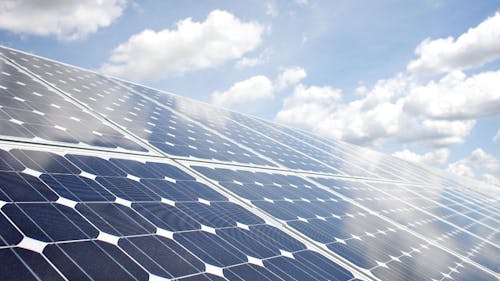Rutgers professor explains importance of U.S. rejoining Paris Agreement

On his first day in office, President Joseph R. Biden Jr. signed an executive order for the U.S. to rejoin the 2015 Paris Agreement, an international treaty aimed at combating climate change, according to CNBC.
Robert Kopp, director of the Institute of Earth, Ocean and Atmospheric Sciences and a professor in the Department of Earth and Planetary Sciences, discussed the transition back into the agreement and why it is a necessary step in tackling climate change.
He said the fight against climate change calls for significantly reducing greenhouse gas emissions and counterbalancing any remaining emissions through forestation or technology.
“What the science says is that to stabilize the climate, we need to get to net-zero carbon dioxide emissions,” Kopp said.
In order to achieve net-zero carbon emissions, he said there needs to be a collective effort among countries, a global solution to a global problem, such as the Paris Agreement.
Kopp said that the return by the U.S. to the agreement is necessary because it is one of the largest contributors to global greenhouse gas emissions, making up approximately 15 percent.
“The U.S. role is (to lead) by example ... ideally, (the U.S. should be) helping rally the world to move in this direction or at least catching up and not dragging the rest of the world back,” he said.
Kopp said the leadership of the U.S. can promote climate policies and prevent an increase in emissions by helping developing countries implement clean energy technology and infrastructure.
Within the Paris Agreement, each country decides its nationally determined contribution (NDC), which is a formal commitment or objective based on its own political and technical capabilities, he said. The mechanics of the agreement include revisiting, revising and evaluating each country’s progress in completing its NDC.
In the U.S., Kopp said greenhouse gas emissions have been trending downward for the last 15 years, and much of this reduction in emissions has been driven by phasing out coal as well as expanding clean energy.
“The most effective thing that has happened internationally in climate policy (is), basically, Chinese and German investments during the stimulus period and, to some extent, the American investment in clean energy technologies,” he said.
Going forward, Kopp said the Biden Administration’s investments in technology and infrastructure will serve as tools in addressing climate change.
“The most important (thing) you can do is make investments in a decarbonized electric system and a decarbonized energy system in this country,” he said.
Although, in the long term, Kopp said democratic reforms are just as important in fighting climate change as investments in sustainable technology.
“(Approximately) 65 percent of Americans support strong federal action on climate change, but we have a political system that's set up that (gives more weight to) the voices of the 20 percent who oppose it,” he said.
Kopp said that efforts to undermine democracy, such as gerrymandering and voter suppression, make it difficult for climate policy to pass.
“Ultimately, to have effective climate policy in this country, you need to have democratic reforms that allow majority governance,” he said. “Our democratic crisis ... and how we’re able to deal with the climate crisis or not, as a country, are closely related to one another.”



